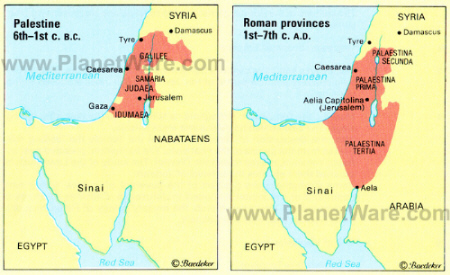As a serious contender for the Republican nomination to be President of the United States in elections to be held in November 2012, Gingrich raises serious question of what his approach toward a Middle East policy will be if elect
By F. Michael Maloof
 Former Speaker of the U.S. House of Representatives and now Republican presidential candidate Newt Gingrich is a shining example of why U.S. policy in the Middle East is in shambles.
Former Speaker of the U.S. House of Representatives and now Republican presidential candidate Newt Gingrich is a shining example of why U.S. policy in the Middle East is in shambles.
In a recent interview with a Jewish cable channel, Gingrich said that while the Palestinians are “invented” and have no right to a future state, the Jewish people “have the right to have a state.”
His pathetic comments about Palestinians is an unfortunate effort to show his support for the “state of Israel” while dismissing the historical entitlement Palestinians have for what is Occupied Palestine.
Gingrich, who brags about his credentials as an historian, said that in the early 20th century, when the British declared its support for “the establishment in Palestine of a national home for the Jewish people,” the occupants of that territory, namely the Palestinians, didn’t have a legitimate claim to the land.
“I believe that the commitments that were made at the time – remember, there was no Palestine as a state,” Gingrich said. “It was part of the Ottoman Empire. And I think that we’ve had an invented Palestinian people, who are in fact Arabs and were historically part of the Arab community. And they had a chance to go many places.”
It’s truly unfortunate that Gingrich the historian didn’t do his research on the Palestinian people who have been on the West Bank, Gaza and in Occupied Palestine since virtually prehistoric times. It was the imposition of the state of Israel which forced their displacement and now a majority of Palestinians today are stateless.
As a serious contender for the Republican nomination to be President of the United States in elections to be held in November 2012, Gingrich raises serious question of what his approach toward a Middle East policy will be if elected.
A further indication is his previous statement that if elected he would move the U.S. Embassy from Tel Aviv to Jerusalem, thereby recognizing that the city is the capital of the Zionist state. Gingrich seems to be taking the position of the most extreme Zionist politicians and some so-called scholars who suggest that the Palestinian identity originated in the early twentieth century when the term Palestinian started in the pre-World War I period. It indicated a nationalist concept of a Palestinian people.
However, Gingrich dismisses – or ignores – the fact that the reference to Palestine goes as far back as the work of the Greek historian Herodotus in the 5th century B.C.E. Even then, Palestine referred to the coastal lands from Phoenicia down to Egypt.
Herodotus spoke of Palestine or Palestinian-Syrians to distinguish from the Phoenicians. Syria Palestina historically has been referred to the area between the Mediterranean Sea and the Jordan River, as depicted in the writings of Philo, Josephus and Piny the Elder.

Even the Romans adopted the term Syria Palestina as the official administrative name for the region in the 2nd century C.E. According to historical records, “Palestine” then became a stand-alone term that was printed on coins, inscriptions and even in rabbinic texts.
It was the Roman Emperor Hadrian in 130 C.E. who renamed the region Palestine – long before the era after the Ottoman Empire to which Gingrich referred.
According to the historian Rashid Khalidi, the term Palestine encompasses the Biblical, Roman, Byzantine, Umayyad, Fatimid, Crusader, Ayyubid, Mamluk and Ottoman periods.
Even some prominent Jewish Americans appear puzzled by Gingrich’s comments. Eliott Abrams, a deputy national security advisor under former President George W. Bush, criticized Gingrich’s description.
“There was no Jordan or Syria or Iraq, either, so perhaps he would say they are all invented people as well and also have no right to statehood,” Abrams said. “Whatever was true then, Palestinian nationalism has grown since 1948, and whether we like it or not, it exists.”
The same might also be said for America – an invention.
Gingrich’s comments are at serious odds with policies of Presidents Bill Clinton, George Bush and President Barack Obama, all of whom support a separate Palestinian state.
While Palestinian nationalism emerged during the interwar period of the 20th century in response to Zionist immigration and settlement, historian James L. Gelvin argues that this fact doesn’t take away from the legitimacy of the Palestinian identity.
 “The fact that Palestinian nationalism developed later than Zionism and indeed in response to it does not in any way diminish the legitimacy of Palestinian nationalism or make it less valid than Zionism,” Gelvin said. “Why else would there be the need to specify who you are? And all nationalisms are defined by what they oppose.”
“The fact that Palestinian nationalism developed later than Zionism and indeed in response to it does not in any way diminish the legitimacy of Palestinian nationalism or make it less valid than Zionism,” Gelvin said. “Why else would there be the need to specify who you are? And all nationalisms are defined by what they oppose.”
Indeed, Palestinian Arab nationalist sentiment started in 1834 when Arab residents in the Palestinian region first revolted against Ottoman rule.
And they were there until 1948 when Zionist mobs forced thousands of Palestinians to flee their homes and villages, which were replaced by Jewish immigrants who were streaming into the region.
Gingrich ignores the fact that United Nations resolutions call for the right of Palestinian refugees to return to their homes, but that isn’t enforced. If elected, he certainly will not be pushing for their enforcement.
There’s a game going on in Washington right now between the Democrats and Republicans over who can gain the most influence with Jewish voters for the upcoming election. Clearly
Gingrich has gone over the top and has actually outdone even some of the more conservative Jewish Americans and indeed “Israeli” politicians.
The alarm over Gingrich’s statement is underscored by the prospect that given Obama’s low ratings, he may not get reelected and Gingrich, who is riding high now in the polls, could get the Republican nomination and indeed go on to beat Obama.
 Not that Obama is any champion of Palestinians, as seen by his administration’s recent actions at the U.N. to oppose upgrading Palestinian status and halting the $60 million in U.S. funding for the United Nations Educational, Scientific and Cultural Organization, or UNESCO, after it voted to give Palestine membership on it.
Not that Obama is any champion of Palestinians, as seen by his administration’s recent actions at the U.N. to oppose upgrading Palestinian status and halting the $60 million in U.S. funding for the United Nations Educational, Scientific and Cultural Organization, or UNESCO, after it voted to give Palestine membership on it.
Clearly, the two decades-old attempt at a bilateral solution between the Palestinian Authority and the Zionist state isn’t going anywhere. And U.S. policy is in such lockstep with “Israel” that any reasonable solution doesn’t appear to be forthcoming from there either.
Gingrich’s unfortunate remarks about Palestinians should be a catalyst by more responsible nations to move forward at the U.N. to come up with an overarching solution, one that takes into account the reality of Zionists on the land that was taken from Palestinians.
Just as we saw a Bosnia-Herzegovina solution for the mix of Christians and Muslims, perhaps consideration needs to be given to an Israel-Palestine – a throwback to Herodutus whose time may have come – again.
F. Michael Maloof is a former senior security policy analyst in the US. Office of the Secretary of Defense.
